Artist Profile: Simon Denny
Posted by <Toniann Fernandez> on 2023-02-23
Imag(in)ing Digital Wilderness
Simon Denny’s Metaverse Landscape 1: Decentraland Parcel -81, -17 is a depiction of something that somebody else owns. The oil painting resembles a midcentury abstraction in black, deep ocean blue, and forest green. Flat gray lines divide the painting. Its surface is gridded in layers of short black brush strokes. At its center is a small red square where what’s spoken for announces itself.
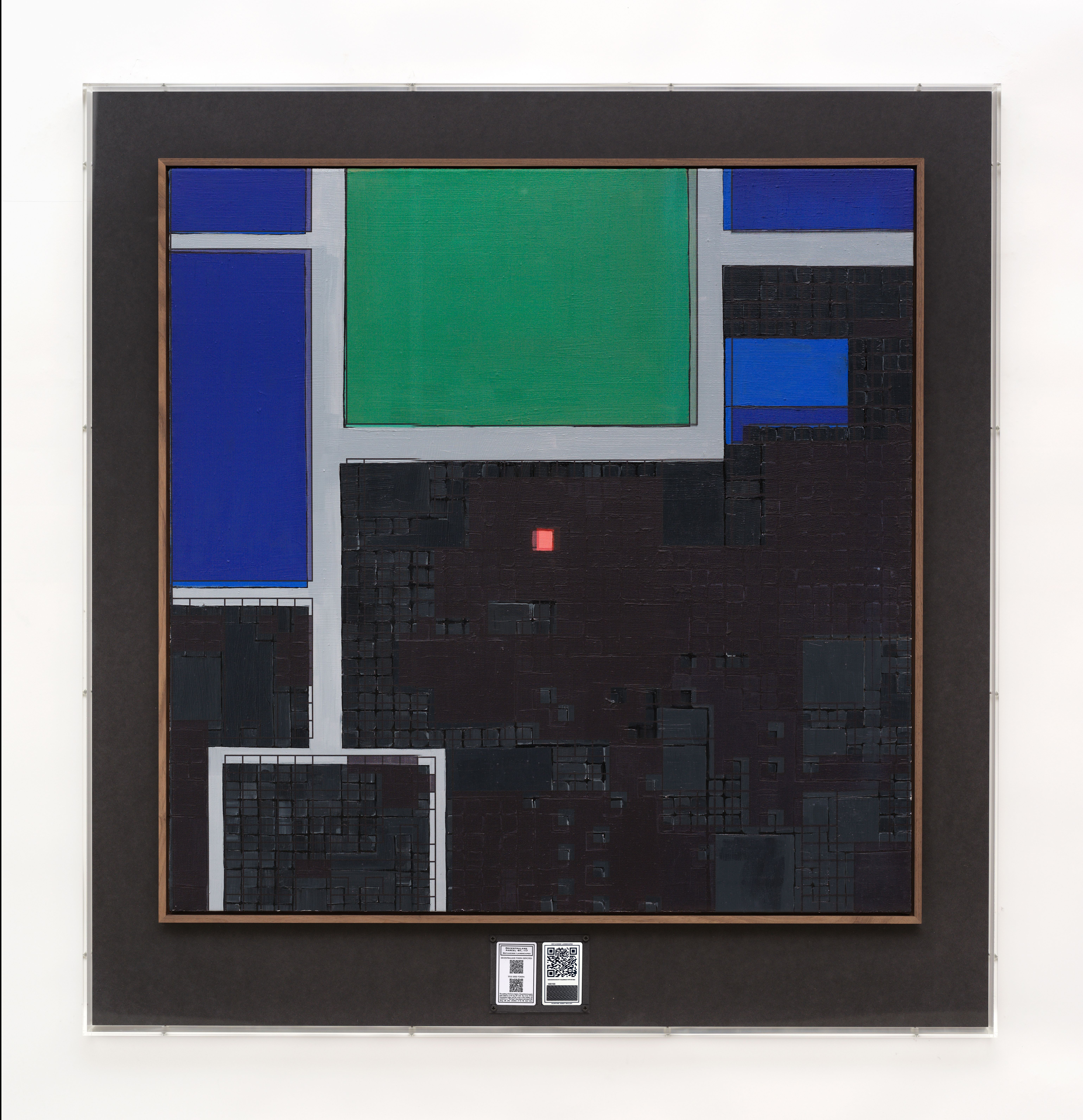
Metaverse Landscape 1: Decentraland Parcel -81, -17
UV print and oil on canvas, wood, MDF, Plexiglas, ETH paper wallet, dynamic ERC-721 NFT
Physical object: 1274 x 1224 x 62 mm, framed
When you purchase space in the Metaverse, the deed to the “land” comes in the form of a token with an image. The image is an imagination of the virtual landscape and a receipt of ownership. It looks like a snapshot of a map. “If you can see something,” Denny says, “then you can imagine owning it.” The visible rendering of digital space is directly linked to ownership in the virtual frontier. But creating a depiction of space for the means of extraction is not a new technology. It is a reiteration of the mechanics of settlers past in a different paradigm. In his Metaverse Landscape Paintings, Denny expands his multidisciplinary practice of mapping technological development and global mining systems under capitalism to explore the role of landscape painting in enforcing new ownership systems onto existing space.
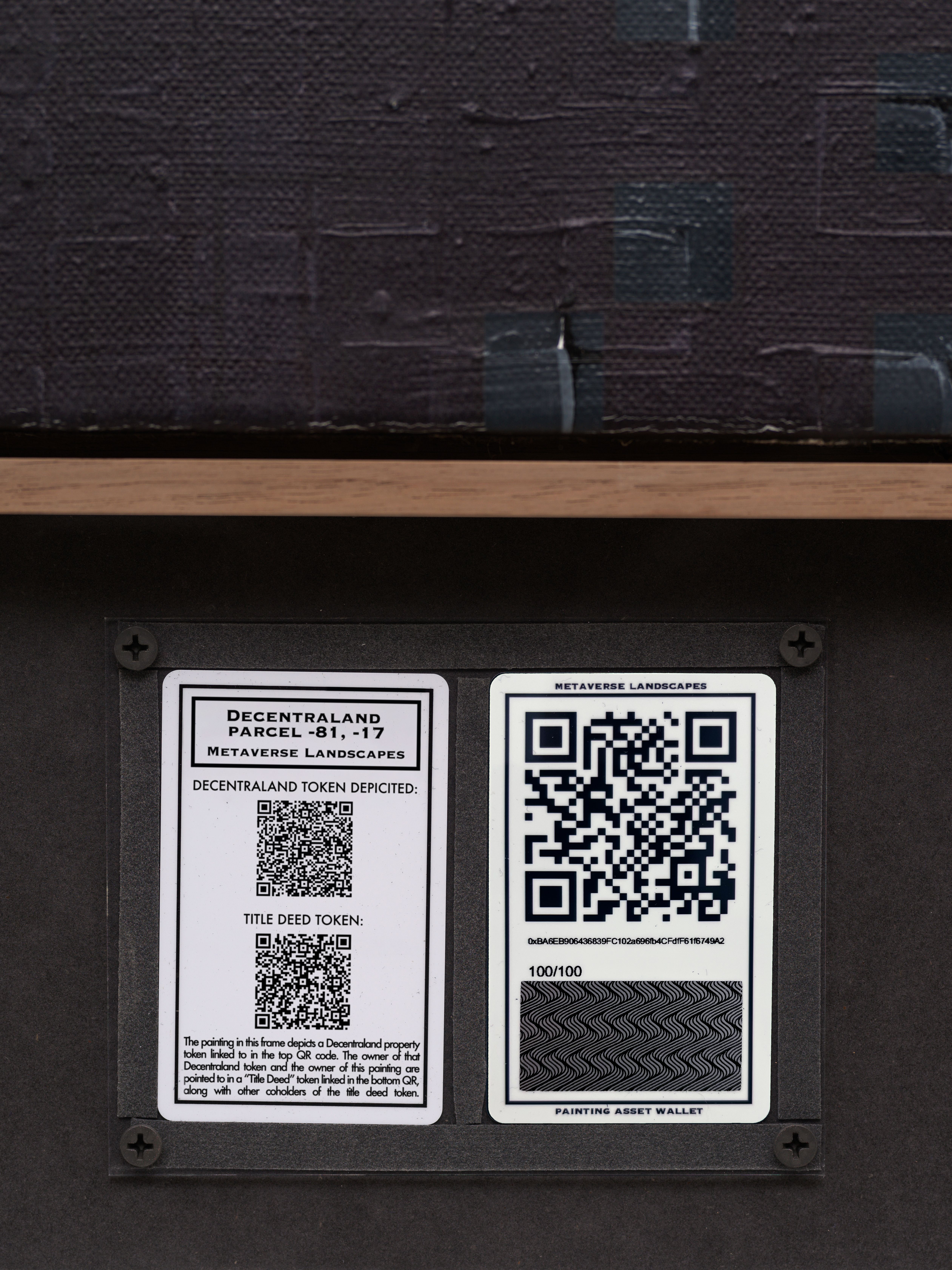
Metaverse Landscape 1: Decentraland Parcel -81, -17
Nineteenth century colonial landscape paintings were created to make land imaginable to the market systems being transported with European settlement. But inherent to their production is the obfuscation of existing technology that inevitably occurs in the application of a pictorial tradition of one culture onto a foreign landscape. Denny’s paintings draw an historical continuity between colonial landscape images and images currently being produced for virtual settlement. The image on a Decentraland title deed implies ownership. Denny’s oil paintings of these images carry no means of ownership beyond the paintings themselves, but they do track ownership of the referenced land parcels forever. Beneath each painting are two cards that resemble Monopoly land deeds. The codes on the cards represent NFTs that point to the wallet that owns the original land token represented in the painting, as well as the owner of the painting. If the owner of the original token sells the land, it is transferred to a new wallet, but it is tracked by Denny’s NFT. The virtual land, its owner, its rendering by Denny, and its owner are irrevocably bound in cascading layers of ownership. The owner of the virtual space likely has no idea.
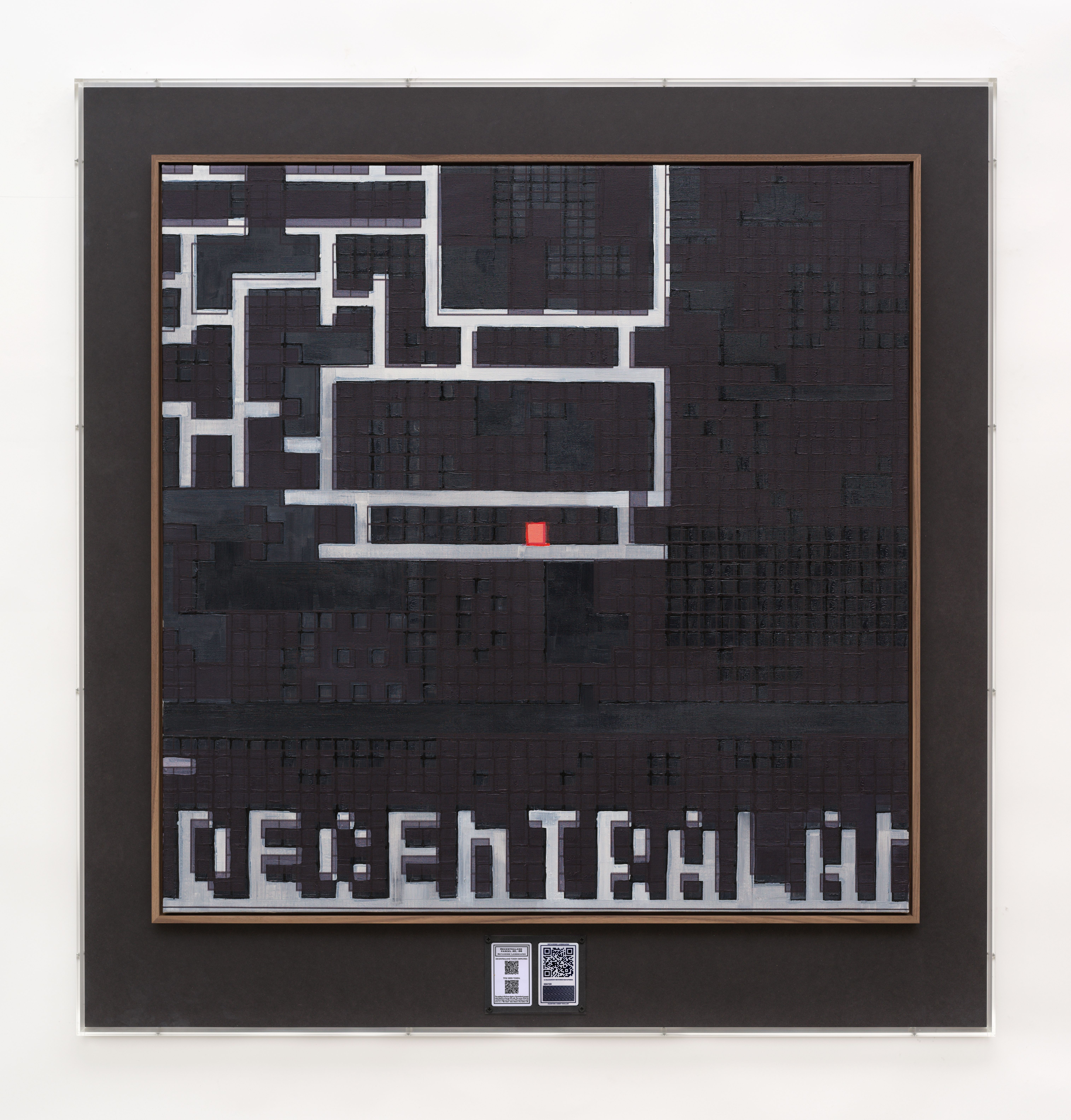
Metaverse Landscape 4_Decentraland Parcel 40, -96
UV print and oil on canvas, wood, MDF, Plexiglas, ETH paper wallet, dynamic ERC-721 NFT
Physical object: 1274 x 1224 x 62 mm, framed
The Metaverse Landscape Paintings feature different realms of the Metaverse, all of which have unique characteristics. The deeds of Decentraland yield oil paintings that resemble the modernist compositions of Mondrian, while paintings of Somnium are more in the vein of Russian Suprematism. Denny is also experimenting with depictions of land deeds from Voxels and Otherside spaces. A selection of the landscape paintings will be exhibited at Frans Masereel Centrum in Belgium in the late summer, as well as at Altman Siegel in San Francisco in the fall. In Belgium, Denny plans to create lithograph prints of the landscape paintings to show alongside the unique works. The prints will fortify the kaleidoscopic layers of ownership already present in the series. In San Francisco, the artist plans to hang the landscapes from whiteboard room dividers that he won in a Twitter office liquidation auction. The result will be a multilayered presentation of space divided.
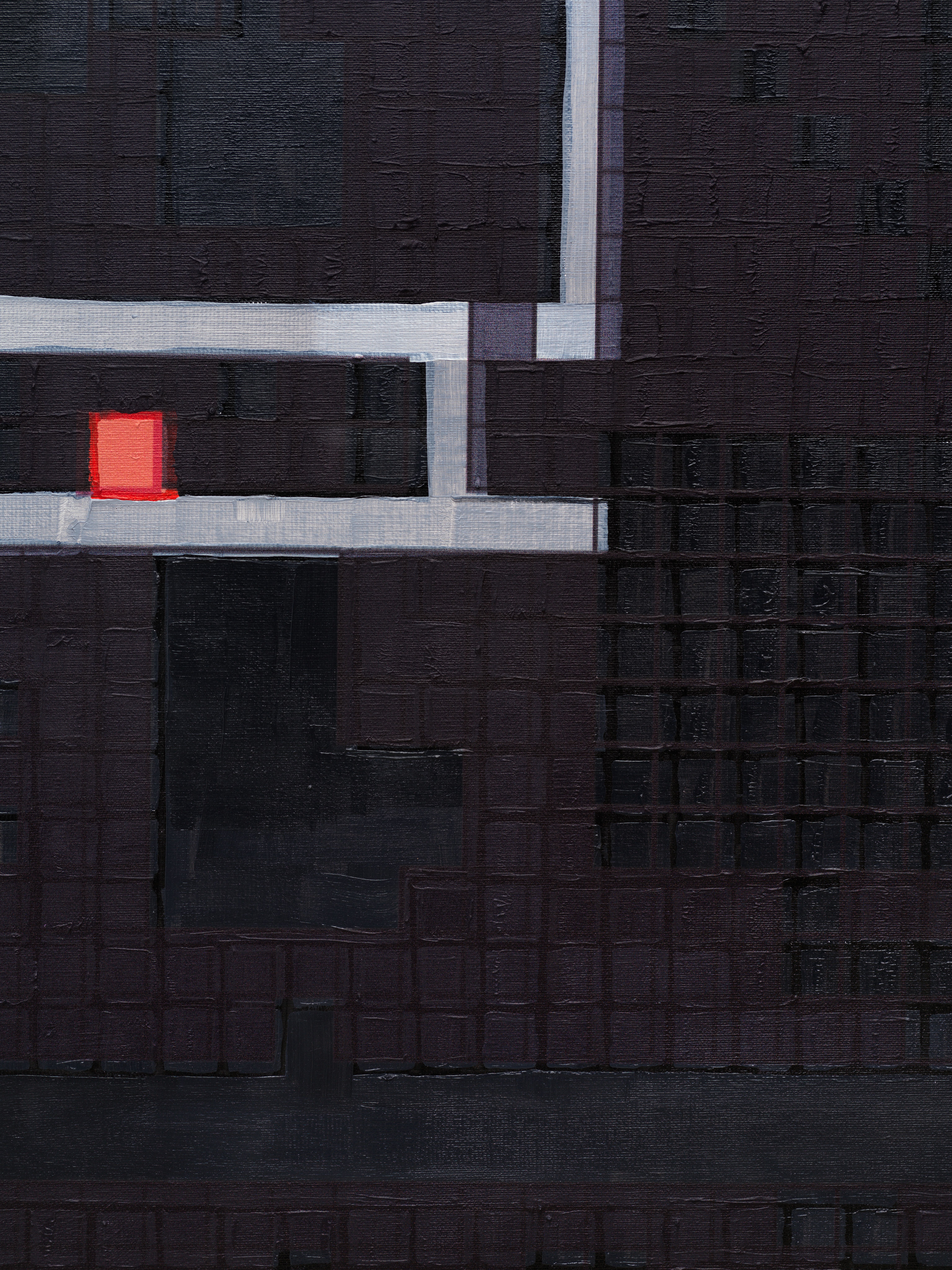
Metaverse Landscape 4_Decentraland Parcel 40, -96
In the future, Denny may use the Monopoly-esque title deed cards as the basis for a game. He is a collector of historical board games, and has employed the technology of gaming in works like Extractor, a reinvention of the Australian sheep herding game Squatter. Players build their own centralized data platform, and in doing so, reveal the mechanisms underlying digital capitalism. With his Metaverse Landscape Paintings, Denny shifts the focus from devirtualized system to devirtualized space, within the wilderness of which technologies unimaginable to the settler may be veiled.
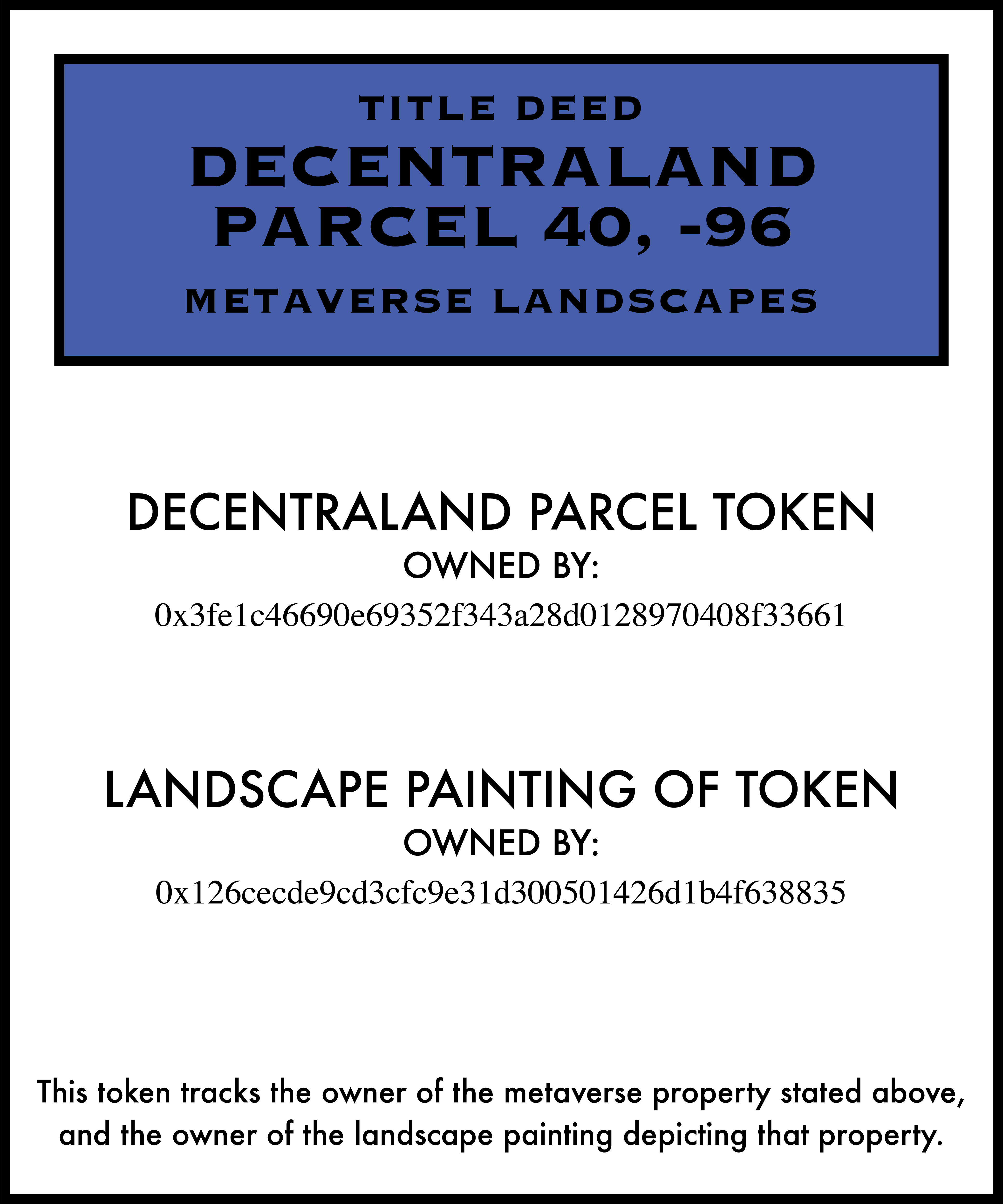
Metaverse Landscape 4_Decentraland Parcel 40, -96